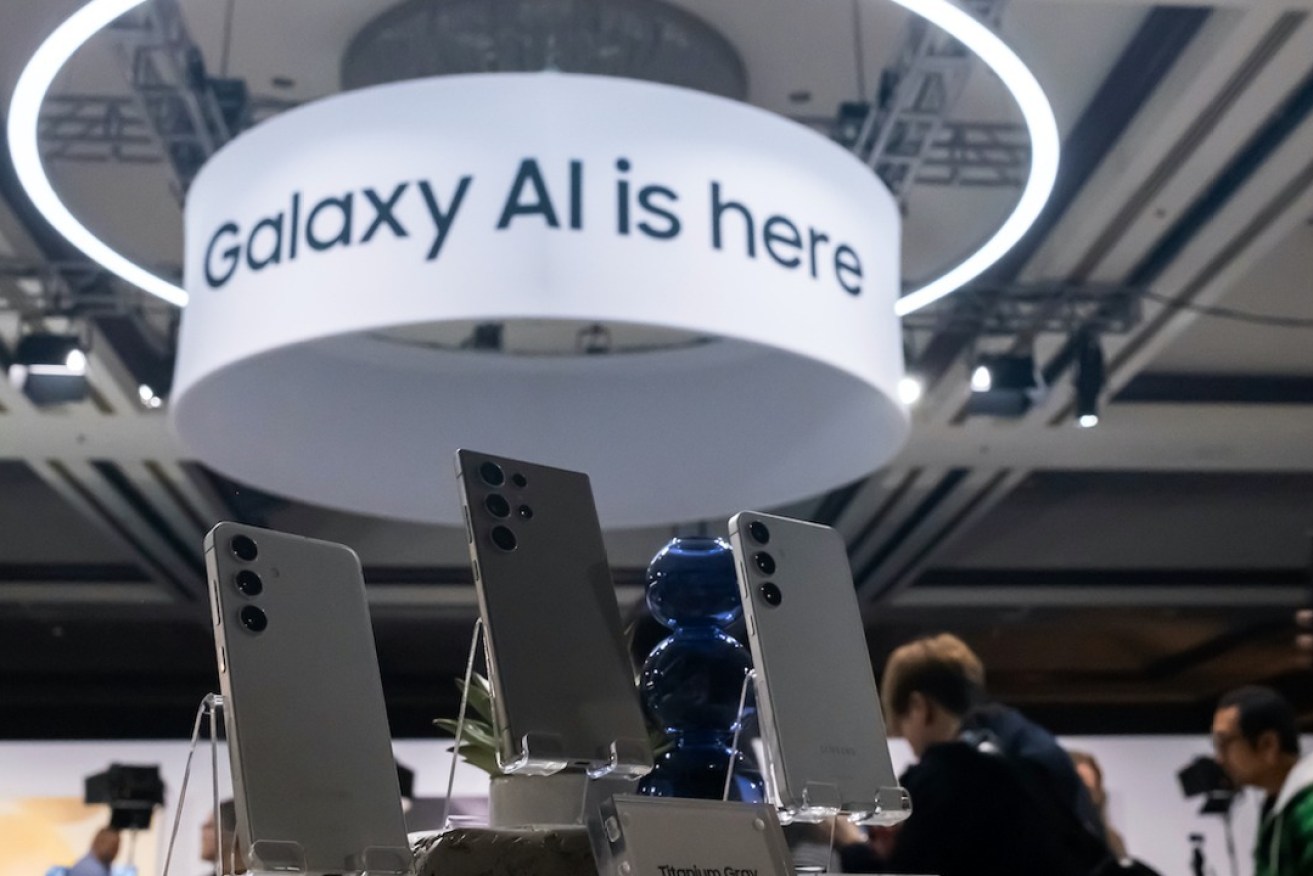‘New era’ of AI smartphones launched
The world’s biggest smartphone maker has unveiled its first handset powered by generative artificial intelligence software, in a move Samsung says will usher in “a new AI era” for the technology.

Photo: Jennifer Dudley-Nicholson/AAP
The South Korean tech giant launched its flagship Galaxy S24 phones at an event in San Jose on Thursday, revealing devices with a suite of AI photo-editing, translation and internet search tools.
Industry experts predicted the launch would kick off a trend in AI smartphones but warned consumers would need consistent warnings to show when the technology had been used and ensure they were not misled.
The launch came just one day after the federal government released its Safe and Responsible AI interim report, which outlined plans to develop a voluntary standard to label AI content.
Samsung’s latest smartphones are the first to promote AI tools, which Samsung Australia mobile experience director Eric Chou said showed it felt consumers were ready to embrace the technology.
“We believe this is the new AI era,” he said.
“Everyone’s now quite comfortable with the concept of AI so we’re effectively ramping up the services we offer consumers.”
The three new smartphones, to be released on February 7 and priced from $1399, will feature AI image-editing software allowing users to move or delete subjects and artificially add backgrounds, as well as AI translations for live phone calls, and a new visual Google search feature.
As a safeguard, Chou said the phones would add a watermark and metadata record to digital items created using AI, including edited photos and AI-generated summaries and transcripts.
“The safeguard is pretty clear for us – anything that is edited will have a watermark,” he said.
“Right now it’s not regulated but at some stage it will be so we’ve taken a forward-leaning stance that we do want to ensure anything that is not part of a human interaction is called out.”
University of NSW AI Institute chief scientist Toby Walsh said consumers should expect many more AI-powered smartphones to launch this year as companies seek to catch up to innovation in other parts of the industry.
But he said the development of a standard AI label would be important to help maintain trust in digital photos and videos, though they could be five to 10 years away.
“Digital watermarks are going to become much more important but they are relatively easy to get around now,” he said.
“In the long term, digital watermarks will be built into the hardware of our devices, which is going to make more difficult for people to get around them.”
Digital labels were addressed in the government’s AI report on Wednesday, which named the development of “voluntary labelling and watermarking of AI-generated materials” as one of its immediate priorities.
Tech Council of Australia chief executive Kate Pounder welcomed the development of watermarking standards and said many tech firms were keen to play a role in introducing safeguards.
“There are a number of companies, from Adobe to Google and others, who are already introducing those technologies just as Samsung is doing,” she said.
“It’s good to see government and industry working together to start to formalise how this will work.”
The launch comes as startups around the world push AI communication devices that do not rely on phone networks or traditional apps, such as the r1 from Rabbit.
-AAP




